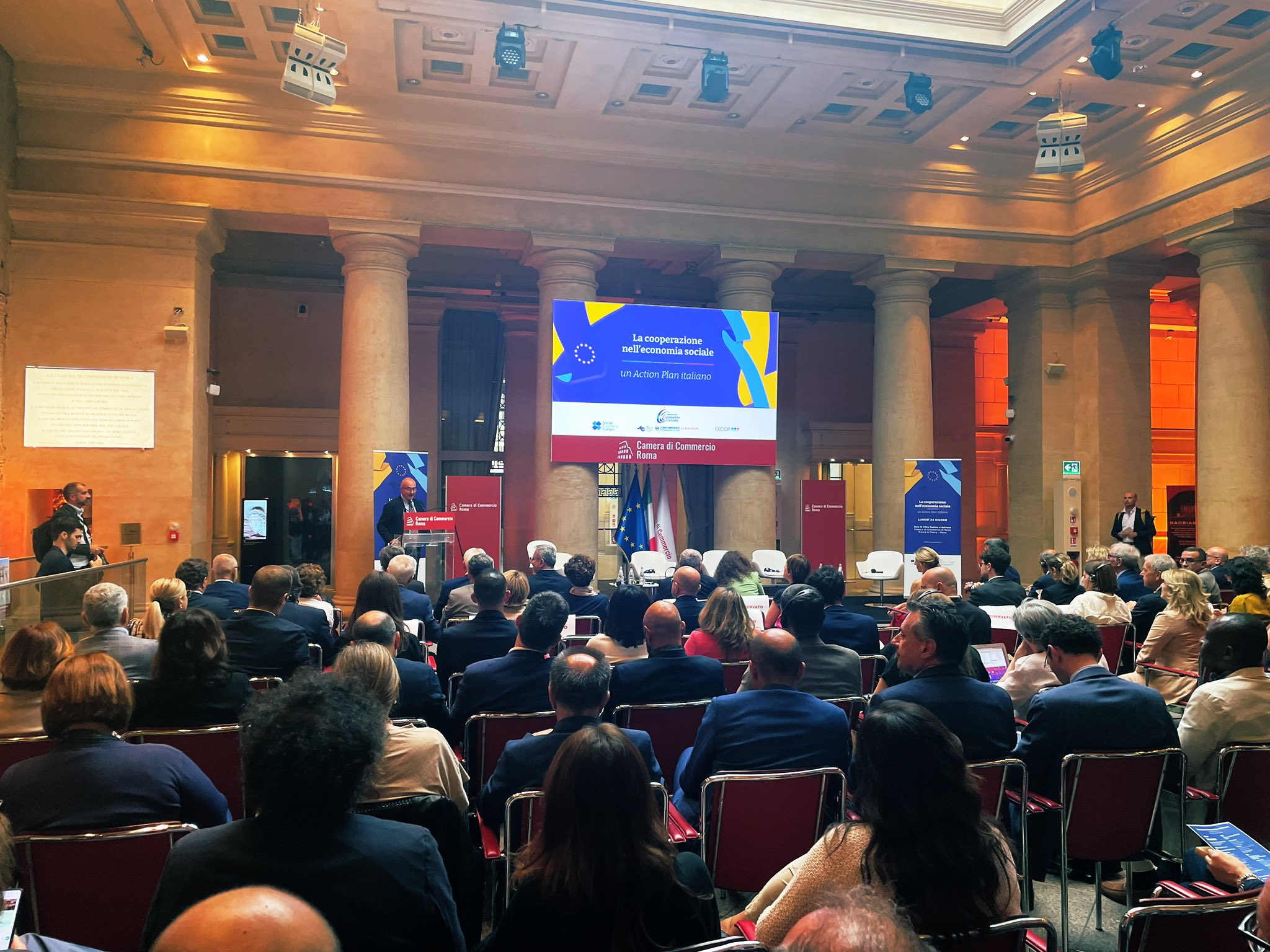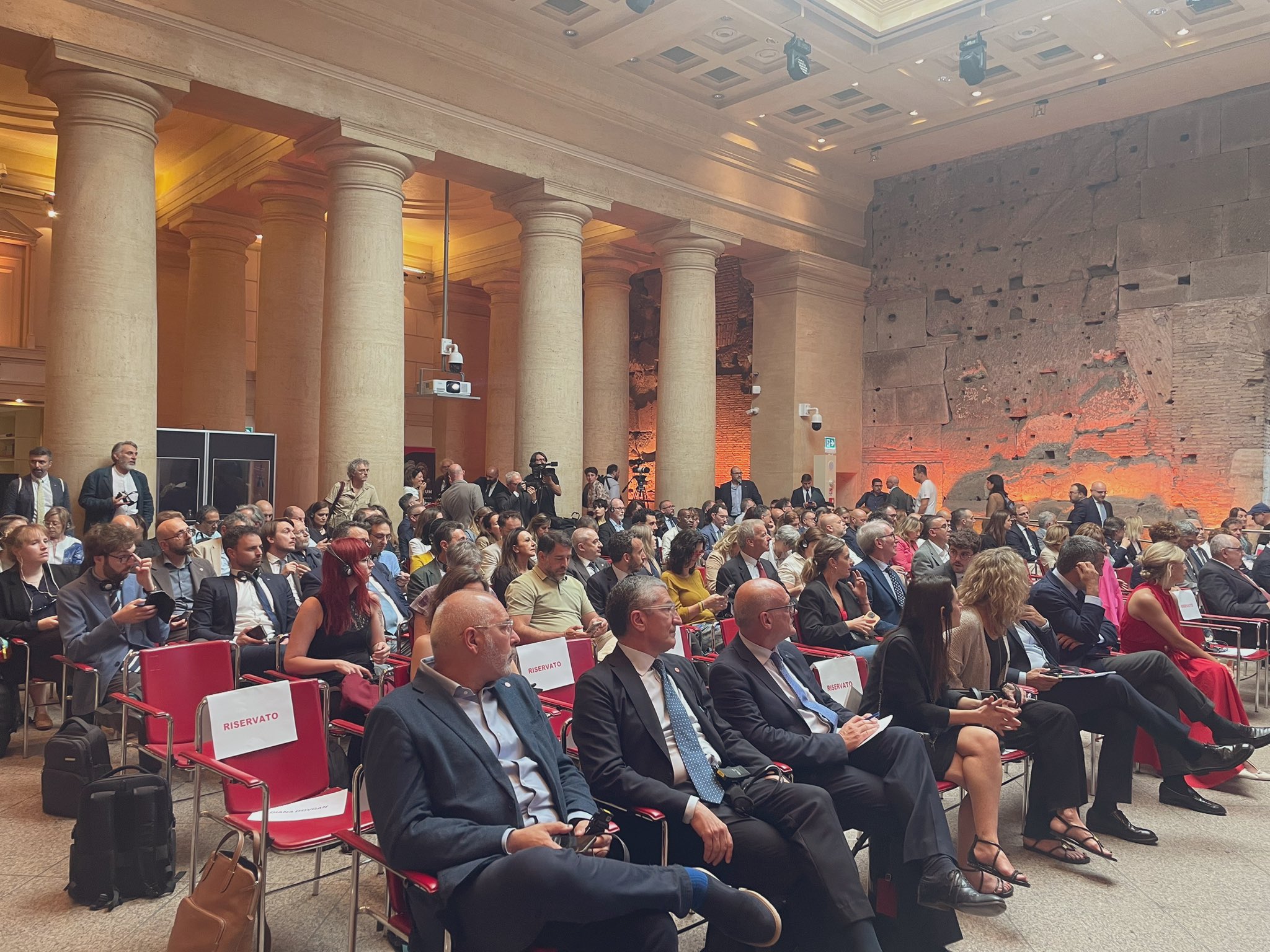
On the 24 June, CECOP co-organised the conference “The cooperative movement in the social economy – an Italian Action Plan” together with the Italian Cooperative Alliance and Social Economy Europe.
The event took place in Rome and aimed to discussing the different scenarios for the future of social economy, including the themes of financing and investment, and the development of an Italian Action Plan for the social economy as a transposition of the European Council Recommendation on developing social economy framework conditions.
The programme included speakers representing the Italian and Spanish government, together with representatives of the Italian cooperative and social economy movement.
The event opened with a speech from Maria Teresa Bellucci, Italian Deputy Minister of Labour and Social Policies. She was followed by Yolanda Diaz, Spanish Deputy Prime Minister, in charge of labour and social economy, who underlined the importance of an EU where the social economy plays a special role. She confirmed that Spain will keep on working on the academic and entrepreneurial fronts, in order to have a more human, democratic, feminist and resilient economy.
Gianluca Salvatori, Euricse General Secretary, moderated the first panel on the Social Economy in Italy and in Europe. He added that European institutions, starting with the European Commission, have rethought the social development of their citizens – now we have tools, measures, and action plans that recognize the social economy as a fully-fledged model involved in industrial policy.
In the same panel, Juan Antonio Pedreño, SEE President, stated that social economy must be prioritised in the European policies, as it increases employment and represents a significant share of the GDP. Moreover, CECOP President Giuseppe Guerini reminded that the EU is facing a crisis in attracting investment and that a mutualised and united capital for cooperatives across Europe could be a way to address it.
The second panel discussed the Italian action plan for the social economy. Lucia Albano, Italian Undersecretary of State to the Ministery of Economy and Finance, and Simone Gamberini, President of Legacoop took part in this panel. The latter highlighted that social economy plays a great role in making the economy more sustainable and fairer. Italy, he added, has always focused on differences, trying to enhance its specific characteristics. The merit of this recommendation is to put the social economy at the core of the agenda.
The event’s third and final panel was dedicated to the contributions of Italian social economy actors, united in their diversity to achieve the development of the social economy in Italy and the EU. Maurizio Gardini, President of Confcooperative, explained that today there is a need for more social economy. He confirmed that in Italy cooperatives must become protagonist, offering solutions, with the example of social cooperatives as fundamental actors for improving the agri-food industry and the territory, and for fair income distribution. He finally noted that peripheries with slower growth will not find answers in the market economy without the social economy.

It is not possible to discuss societal issues without considering all levels and actors: new generations should be considered, as well as the “third sector”. Social economy actors have a proven track record in providing accessible, affordable and tailor-made solutions to communities – not only in Italy, but across the world. An Italian action plan to support the growth of the social economy is key in ensuring that cooperatives can reach their full potential in addressing current societal challenges. Co-creation and cooperation are essential values of the social economy, panelists agreed that they should also be reflected in the methodology adopted to elaborate and implement national action plans to support it.
| This event was co-funded by the European Union. Views and opinions expressed are, however, those of the authors only and do not necessarily reflect those of the European Union or the European Commission. Neither the European Union nor the granting authority can be held responsible for them. |







 Employment & Social Inclusion
Employment & Social Inclusion  Entrepreneurship
Entrepreneurship

